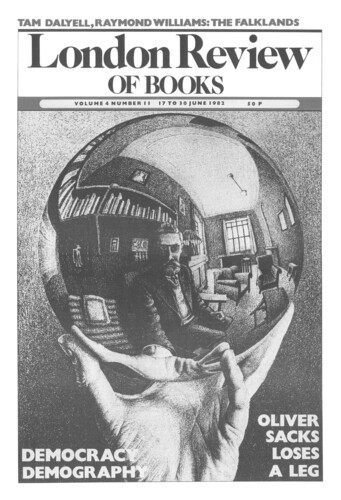‘Sufficient unto the day is the evil thereof.’ I suggest that this is an appropriate motto, not of course for the unfortunate men of the Task Force, but for those who sent them to the South Atlantic. It characterises the whole operation – an operation, as I have tried to show in this journal, which was conceived in an emotional spasm, by the injured pride of the House of Commons, on that hysterical Saturday morning, 3 April 1982. A task force had to be assembled, because it had to be assembled, to do something about the dreadful Argentine Junta, who had taken advantage of our negligence in withdrawing the survey vessel, HMS Endurance, with her peashooter of a gun. No blow-mouth, that Saturday morning, had the remotest idea of what he, or more particularly she – and there was not only Mrs Thatcher, by a long chalk, in this latter category – wanted to do, once the task force had arrived, and, by appearing on the horizon, had automatically shunted the dago intruders out of our island. No one had the haziest notion of what their rational, long-term objective should be. When I interrupted Mrs Thatcher’s opening speech to inquire who our friends were in South America on this issue, she could not name one, even then. But MPs collectively were in no mood to care.
‘Sufficient unto the day is the evil thereof.’ I suggest that this is an appropriate motto, not of course for the unfortunate men of the Task Force, but for those who sent them to the South Atlantic. It characterises the whole operation – an operation, as I have tried to show in this journal, which was conceived in an emotional spasm, by the injured pride of the House of Commons, on that hysterical Saturday morning, 3 April 1982.




